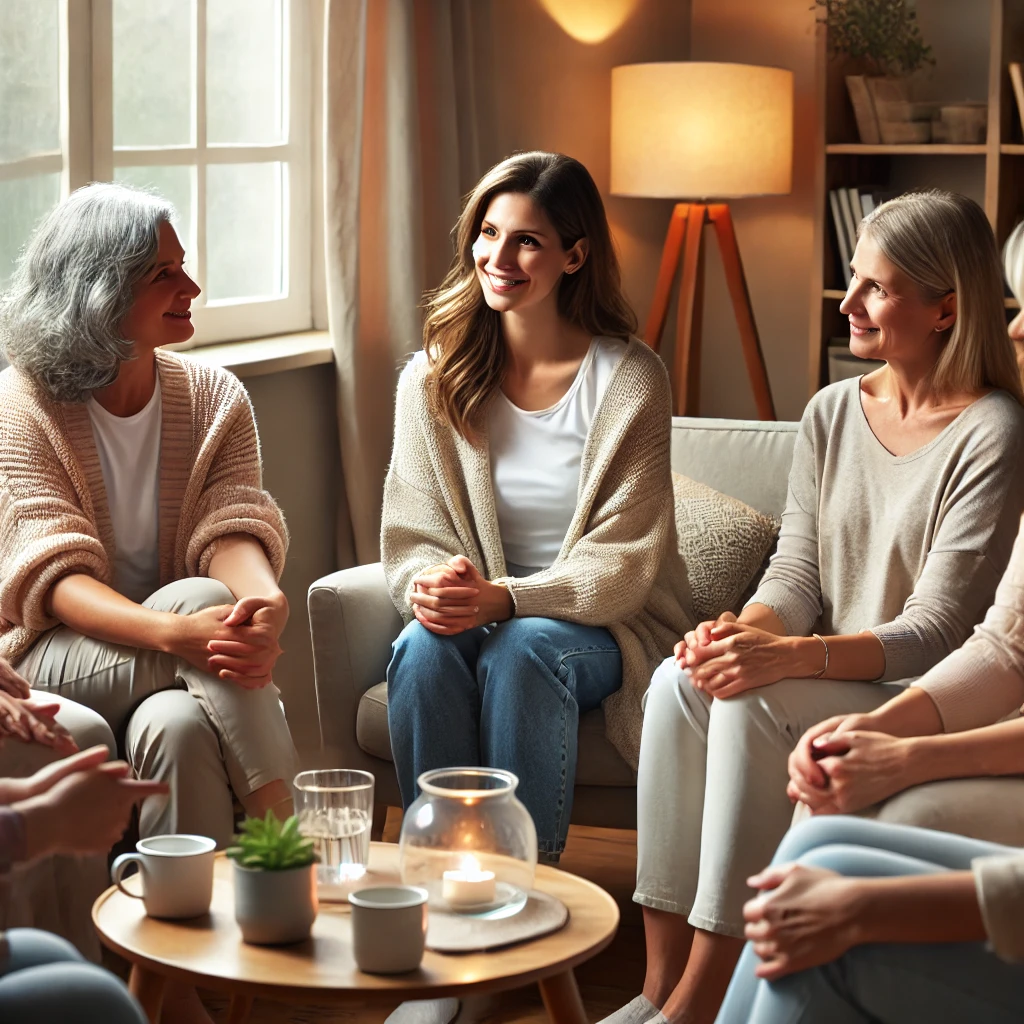
Introduction
Menopause is a major life transition that affects millions of women, often bringing a mix of physical, emotional, and mental challenges. While it’s a natural stage in life, it can feel isolating—especially if you’re facing its symptoms alone. The importance of finding the right menopause support group cannot be overstated. Support groups can provide a safe space for shared experiences, empathy, and advice, allowing you to navigate this transition with confidence and a sense of community.
But how do you find the right menopause support group that aligns with your needs? Whether you’re looking for emotional support, medical advice, or simply a place to share your experiences, this guide will help you discover the best options.
Why a Menopause Support Group Matters
Menopause affects every woman differently. Some may glide through it with few symptoms, while others experience hot flashes, mood swings, and significant emotional upheaval. This journey can feel overwhelming without the proper support. A menopause support group is where you can connect with other women who truly understand what you’re going through. It’s not just about sharing symptoms—it’s about being heard, understood, and supported without judgment.
A good support group helps you gain knowledge, offers coping strategies, and provides a sense of community during a time when many women feel isolated. Whether it’s in-person or online, the right group can be a lifeline for emotional, mental, and physical well-being.
5 Tips for Finding the Right Menopause Support Group
1. Identify Your Primary Needs
Before diving into the search for a support group, ask yourself: What are you seeking? Are you looking for emotional validation, medical information, or lifestyle advice on dealing with symptoms like hot flashes or insomnia? Some support groups focus more on the medical aspect, providing expert-led advice on hormone therapy and treatments, while others offer emotional and peer-led discussions. Clarifying your own needs can narrow down your options and lead you to the right group that fits your specific situation.
2. Research Online Communities
With the rise of online platforms, finding menopause support groups has become easier than ever. There are various forums and communities dedicated to menopause, each with its focus. Websites like Reddit, Menopause Matters, and HealthUnlocked provide active online communities where women discuss everything from symptoms to treatments.
Facebook groups, such as “Menopause Support & Chat” or “The Menopause Sisterhood,” can offer a more personal connection as well. These platforms allow for flexible participation, so you can engage in conversations when it suits your schedule.
Make sure to assess the group’s activity level, number of members, and whether it’s moderated to ensure discussions remain respectful and informative.
Suggestion: Menopause Support Group On Facebook
3. Consider Professional or Peer-Led Groups
Support groups can vary greatly depending on who is facilitating them. Professional-led groups, often run by healthcare providers or counsellors, focus more on the medical and psychological aspects of menopause. These groups offer more structured sessions, often including expert advice on topics such as hormone replacement therapy (HRT), diet changes, and mental health management.
On the other hand, peer-led groups are more informal, offering a sense of camaraderie and shared experiences. Women share their personal stories and coping strategies, which can be equally valuable.
When choosing between professional and peer-led groups, think about whether you want expert guidance or a relaxed, empathetic space where you can connect with others going through similar experiences.
4. Look for In-Person Groups in Your Area
If face-to-face connection is important to you, consider joining a local in-person support group. Many hospitals, clinics, and community centres offer menopause groups that meet regularly. These in-person meetings provide a more personal touch, allowing for more intimate conversations and real-time support.
To find local groups, you can ask your doctor for recommendations or check out community bulletin boards in health centres. You can also explore websites like Meetup.com, which often lists menopause-related groups in various cities.
5. Evaluate Group Dynamics and Privacy
Once you find a group, observe the dynamics and how comfortable you feel within the group. Are members supportive, respectful, and open-minded? The right group should make you feel safe, valued, and heard. If you’re joining an online community, ensure it’s well-moderated to prevent trolling or insensitive comments.
Privacy is another factor to consider, especially when sharing personal experiences about your health. Check whether the group’s discussions are confidential and whether you have the option to stay anonymous.
The Benefits of Joining a Menopause Support Group
Finding the right menopause support group can significantly improve your emotional and physical well-being. Support groups allow you to connect with women who are experiencing similar changes, reducing feelings of isolation. You’ll also have access to shared knowledge, tips, and strategies for managing symptoms like hot flashes, mood swings, and insomnia.
In addition, many women find comfort in having a safe space to talk openly about topics that may not be easily discussed in their everyday lives. Being part of a community can ease anxiety and improve your mental health, helping you cope with the more difficult aspects of menopause.
FAQs about Menopause Support Groups
1. What is the focus of most menopause support groups?
Most menopause support groups focus on emotional support, sharing experiences, and offering advice on managing menopause symptoms. Some groups provide expert medical advice, while others are peer-led, offering a more casual environment for open discussions.
2. Are online support groups effective for menopause?
Yes, online support groups are highly effective, especially for women who need flexibility or live in areas where in-person groups are not available. They offer 24/7 access to support and the ability to connect with women worldwide who are going through the same challenges.
3. How do I know if a support group is right for me?
A good support group will make you feel comfortable, respected, and understood. If you find that you resonate with the group’s discussions and feel supported without judgment, it’s a good fit. Don’t hesitate to try multiple groups until you find one that aligns with your needs.
4. Is it necessary to join a professional-led group?
Not necessarily. It depends on what you’re looking for. If you want expert guidance on medical issues like hormone therapy, a professional-led group is beneficial. However, peer-led groups offer valuable emotional support and shared experiences, which can be just as helpful.
Conclusion
Finding the right menopause support group can provide the emotional, mental, and physical support you need during this transitional phase. Whether you prefer an online platform, an in-person community, or a professional-led group, the key is to find a space where you feel safe, understood, and empowered. Take your time exploring different options and trust your instincts when deciding which group will best support you.
